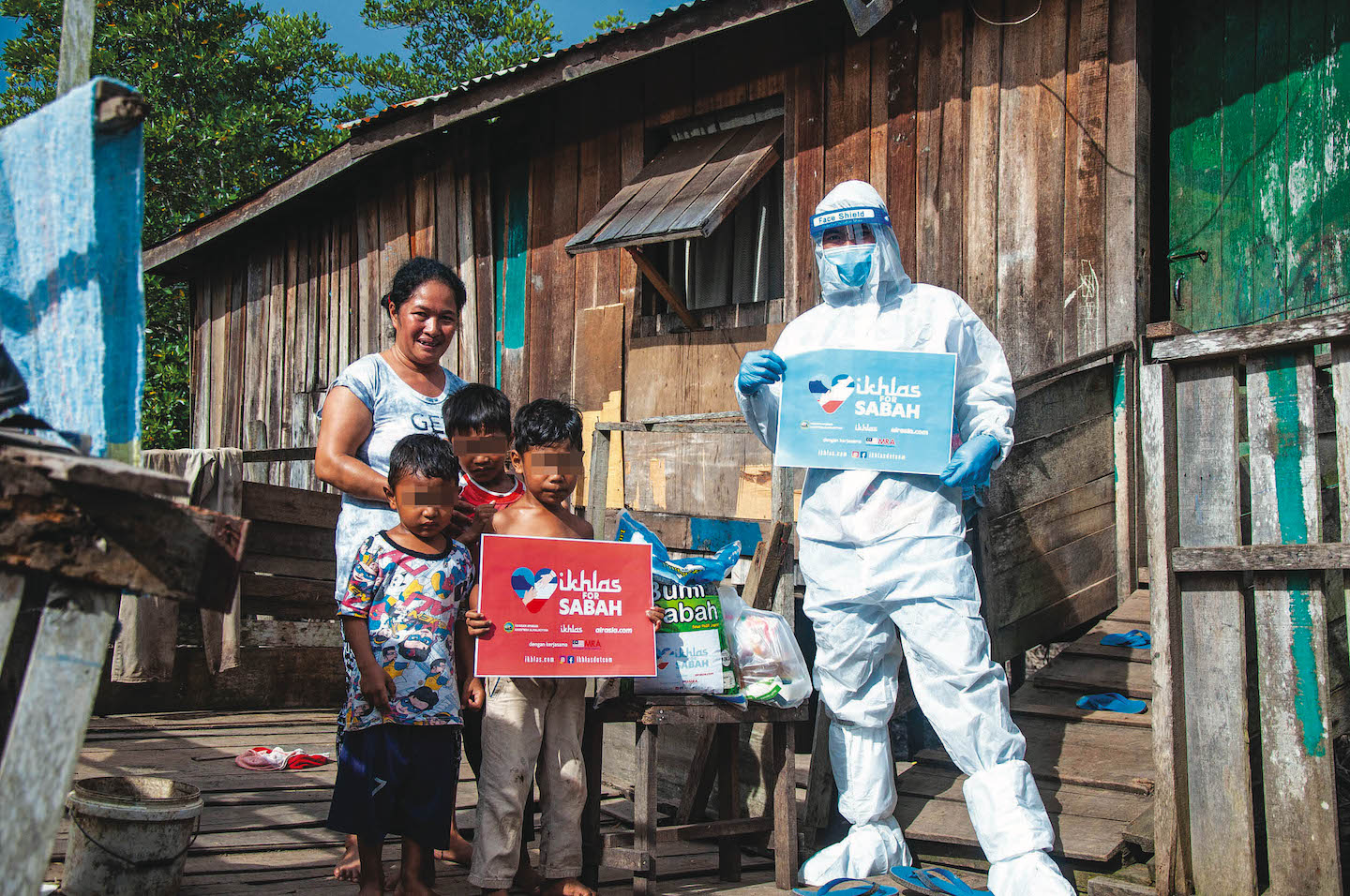
Previously, Ikhlas For Sabah had teamed up with volunteers to help raise funds for Sabahans badly hit by Covid-19 (Photo: Ikhlas For Sabah)
There is no use sugar-coating the ramifications of the pandemic. As the coronavirus outbreak accelerates, more lives may be lost, businesses closed and underprivileged communities mired in financial turmoil. But if there is a silver lining in this crisis, it may be that the virus is forcing us to use technology as it was always meant to: bridge physical distances, share resources and overcome our collective struggles together.
Now, there seems to be a chance for Big Tech firms to reconcile with their old sense of purpose. Amid the pandemic, Google Meet has become the go-to choice for virtual classes while AmazonFresh has made it possible for people to shop for groceries without braving the queues at supermarkets. In an unlikely partnership, fierce rivals Google and Apple teamed up to build software into smartphones that would notify people if they had been in contact with someone infected with Covid-19.
Malaysia is not lagging behind either. The Ministry of Science, Technology and Innovation (Mosti) launched a similar contact-tracking app that uses Bluetooth technology called MyTrace, which complements the existing MySejahtera app.
While identifying virus hotspots is crucial in curbing the pandemic, such an app is not a silver bullet for dealing with the actual impact of Covid-19, which particularly devastates low-income suburbanites who, even in the best of times, face serious medical challenges. According to urban regeneration outfit Think City, an estimated 2.8 million B40 (bottom 40%) households face a greater likelihood of losing their jobs, on top of other issues such as malnutrition, chronic diseases and living in high-density housing.
With that in mind, Think City drew up a plan earlier this year on how an app could be used with online verification to provide targeted aid for the urban poor. In its 32-page guide titled “Covid-19 Crisis: Preserving Lives and Livelihoods — A Guide for Malaysian Policymakers”, the three-pronged strategy aims to manage the pandemic, those impacted by it, as well as the economy and post-crisis. Continuing the provision of basic needs as well as providing businesses with increased access to funding and government guarantees of bank loan extensions are just some of the guide’s recommendations.
It would not be easy to roll out a macro-scale strategy to mitigate these deep-seated issues overnight. In this digital age, creative solutions to tackle real-life problems start from a small tech laboratory, after all. More independent and altruistic techpreneurs are devising software that quietly reinvent the way we improve our daily routine, communicate and even undertake philanthropy. Here are some apps that help us make a difference and cope with the new normal, even after the pandemic is over.
Malaysia generates about 38,000 tonnes of waste a day, of which 3,000 tonnes are edible food. This amount can easily feed 2.2 million people. Social enterprise What A Waste aims to reduce the country’s food waste by channelling surplus produce to the needy and marginalised communities. The platform has extended aid to the B40 group, individual families with dire food needs, indigenous groups as well as rural communities in Malaysia with a high rate of malnourished children.
To be a food donor, just post a photo of the supplies you are offering on the app and wait for them to be redeemed and collected. You can also recommend a deserving food recipient by filling out a form online. There is no commitment as to how much and when you should donate but restaurant owners, bakery shops and hoteliers are more than encouraged to offer their unsold food.
what_a_waste_aims_to_reduce_the_country_s_food_waste_by_channelling_surplus_food_to_the_needy_and_marginalised_community.jpg
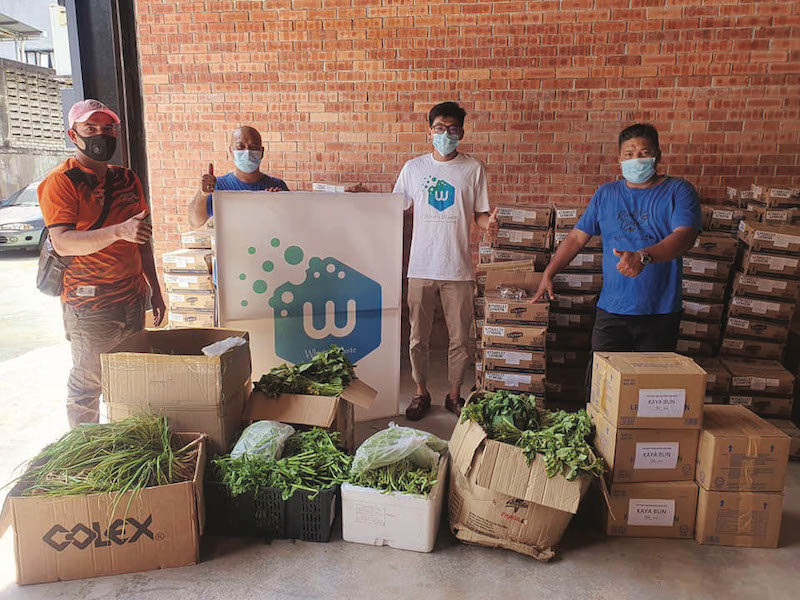
What started out as a platform to help small traders set up their own food business has turned into a lifesaver for food sellers and restaurants that have been battered by the pandemic. Malaysian cooking guru and YouTuber Lim Boon Ping received numerous enquiries on how to start a food business with minimal capital before launching an app that helped food business owners such as bazaar operators, restaurants, hawkers and even housewives generate extra income from their existing business models.
At first glance, the platform may look like a food delivery service, but it is merely acting as a directory. What the app does is connect food sellers, regardless of how big or small they are, to third-party delivery providers. Peddling a “buy food from your neighbours” concept, Home Food plays a significant role for the B40 group, who work long hours just to eke out a living. Now, you can order nasi lemak from your regular makcik, who can operate her business from home without the need to open a physical stall, allowing you and the local community to practise social distancing.
To ensure that everyone has a chance of treatment, the MAA charitable foundation was set up in 1994 to ease the financial burden of kidney patients by providing quality dialysis and healthcare at a subsidised cost. Ten years later, MAA extended its services to include life-saving cardiac screening, diagnoses as well as quality treatment modalities.
The app will come in handy when you need to book an appointment or access the quick guide for health tips. You can store the nearest hospital location and contact details in the app, as well as your medical history should an emergency arise. The app also allows you to contribute — either cash or your time as a volunteer — to MAA charity campaigns, which have provided patients and their schoolgoing children with medical assistance and school supplies respectively.
Ikhlas for Sabah (via AirAsia)
[Update Dec 6, 2020]: Although the official Ikhlas fund-raising campaign has already ended, you can still contribute here.]
The third wave of Covid-19 infections is tearing across the nation at a fiercer pace than ever, with Sabah being the worst-hit state. The situation is made more difficult as many poor communities living in remote areas have yet to receive medical and monetary aid. This digital donation drive, which is part of AirAsia’s Sadaqah service, allows the public to contribute any amount through its website ikhlas.com or the airasia.com app.
The initiative aims to assist at least 2,500 families by working with non-governmental organisations (NGOs) in Sabah to identify groups that are in need such as the underprivileged, single mothers, differently abled people, indigenous groups as well as front liners of all faiths. The donations collected will be used to purchase supplies such as basic necessities from local merchants and small and medium enterprises in Sabah to help keep these local businesses afloat. Since April, the Ikhlas Sadaqah service has collected RM1.3 million, which has benefited more than 15,000 families nationwide.
_ikhlas_for_sabah_extends_a_helping_hand_to_hard-hit_communities_in_sabah_due_to_the_pandemic.jpg
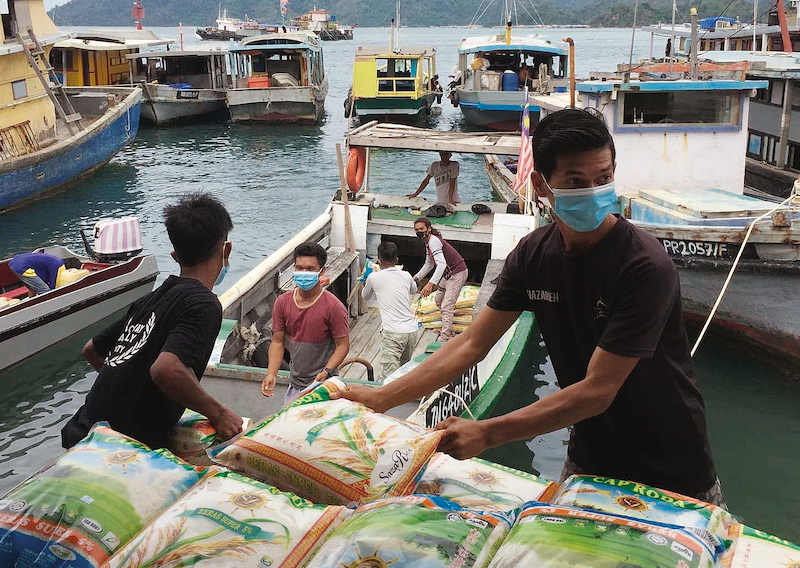
Cashless donation on-the-go has never been easier now that you can offer immediate relief through e-wallet Boost. Apart from the main Tabung Covid-19, which saw a total of RM694,843.13 being donated to aid medical front liners and support underprivileged communities as at June, you can also choose from 39 other charitable organisations, including Pusat Jagaan Sri Mesra (a centre that provides special care and protection for women aged 60 and above), The Hope Project (a non-profit initiative by EAP Malaysia in partnership with Yayasan Kajian Pembangunan Malaysia to provide world-class services to those on the autism spectrum) and Pertubuhan Kanser Kanak-Kanak Negeri Sarawak (an NGO dedicated to meeting the needs of families of patients diagnosed with paediatric cancer in Sarawak irrespective of race, religion, age or gender).
Pertubuhan Amal Seri Sinar Kuala Lumpur & Selangor (P.A.S.S)
You may have seen its orange collection boxes at playgrounds and residential areas but P.A.S.S — which services 250 permanent recycling centres in the Klang Valley daily — is doing more than just recycling old goods to be donated to orphanages, broken families and the disabled. Every other month, the self-supporting organisation donates hundreds of trees to schools, welfare homes and the community to promote a greener environment.
Student welfare is also big on its agenda. Schools have not only received a water filtration system for students to enjoy clean and safe water but also study aid to give needy pupils a shot at education. The P.A.S.S app is regularly updated, letting users search for recycling centres easily and contribute by either planting a tree or making a monetary donation.
Grub Cycle stands out from the crowd by rescuing surplus food from supermarkets and farms. Over-produced vegetables have been distributed to the People’s Housing Project (PPR) communities at less than half the market price.
Using the app, you can purchase a variety of surplus cakes, pastries and over-produced food from restaurants via Grub Bites. Those are not the only bargains: To prevent products that are close to expiry from being thrown out, the website is selling them at a discount. Best of all, you can keep track of how much money you have saved and how much food you have prevented from going to the landfills at the end of the day.
grub_cycle_rescues_surplus_food_from_going_to_landfills.jpg
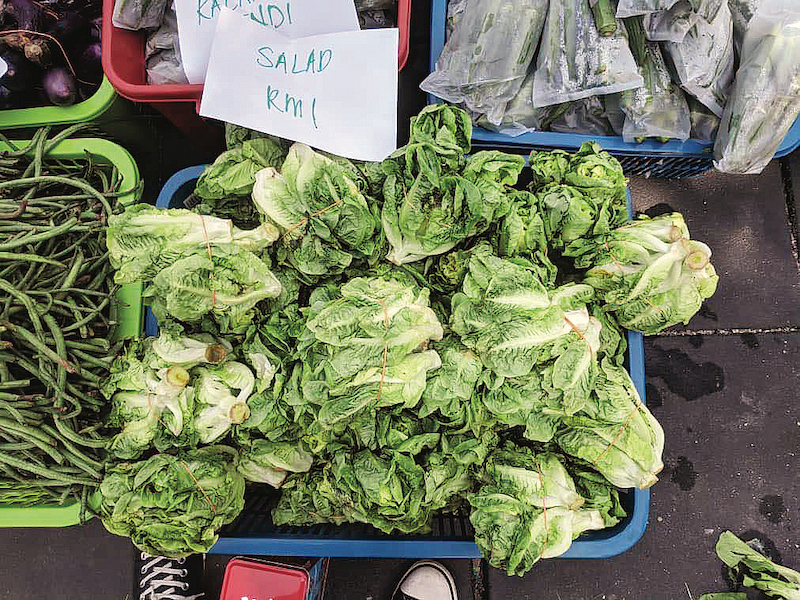
As teachers and parents deal with the long-term implications of remote learning owing to Covid-19, many have perceived that 2020 (or even the months ahead) to be a lost year for students. While waiting for schools to safely reopen, Snapask can help students with their studies in a one-on-one learning session. The mechanics are simple: Post a snapshot of your question, be it a mathematical or grammatical problem, and the platform will match you with a tutor within seconds.
Serving more than 3.5 million students with more than 350,000 qualified tutors from renowned universities in nine Asian countries or territories, including Hong Kong, Taiwan, Japan, Singapore and Malaysia, the app can devise study materials and chart your progress. Each session is priced as low as RM5.90, but you can also book a 30-minute crash course on a difficult topic you wish to focus on.
HEALTH COACH IN A POCKET
Digital health start-up Naluri began with a straightforward objective: to improve the fitness of Malaysians. But founder Azran Osman-Rani — former CEO of iflix and AirAsia X — saw how his app could provide employees with psychological health support amid the pandemic.
Naluri has been called a scalable health coaching app because it is a service that assigns a professional health coach to check in on you online regularly. Not only does it provide users with structured programmes that have been personalised to their emotional, mental and physical needs, it helps them achieve better health outcomes by building the necessary mental resilience to cope with any lifestyle constraints.
sidebar_azran_osman_rani_founder_of_naluri.jpeg
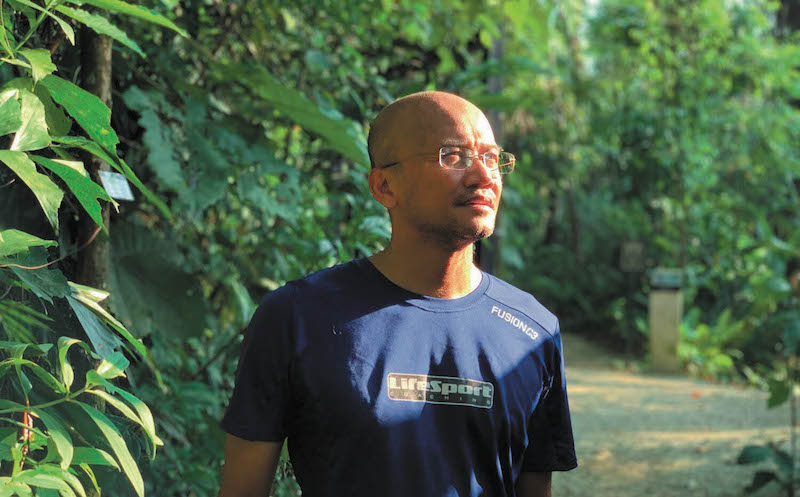
Backed by a stable of credible doctors, dietitians, fitness coaches and pharmacists, the app offers unlimited and on-demand personal coaching services at a fraction of the price you may get at bricks and mortar clinics. Moreover, it is equipped with special features like food photo journaling (making food intake and calorie counting easier) and digital thought journaling, which logs your thought patterns and behaviours.
As companies have stressed the significance of work-life balance and mental health, numerous wellness initiatives have mushroomed in workplaces too. Naluri also caters for notable corporate clients such as Petroliam Nasional Bhd (Petronas), AHA Insurance, Pfizer and RHB Bank. Its latest partnerships include that with Malaysia Aviation Group (MAG), a global aviation organisation comprising national carrier Malaysia Airlines, Firefly, MASwings, MABkargo, MAB Academy and AeroDarat.
As planes continue to be grounded, with forecasts showing that global passenger traffic (revenue passenger kilometres or RPKs) will not return to pre-Covid-19 levels until 2024, most aviation crews are being furloughed or confronted with the possibility of losing their jobs. Naluri disrupts traditional Employee Assistance Programmes with early screening, providing comprehensive health solutions and quantifiable improvements that are clinically significant.
This article first appeared on Nov 23, 2020 in The Edge Malaysia.


